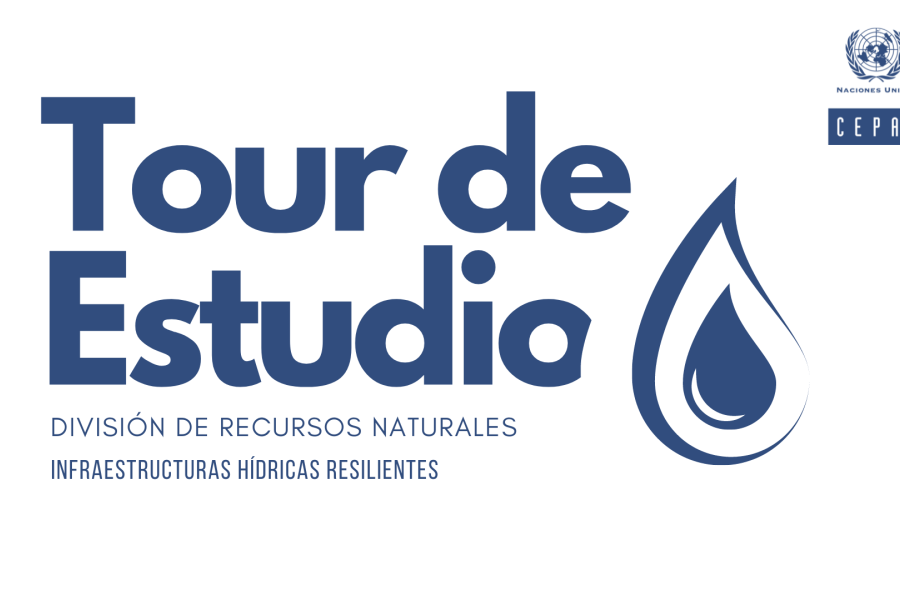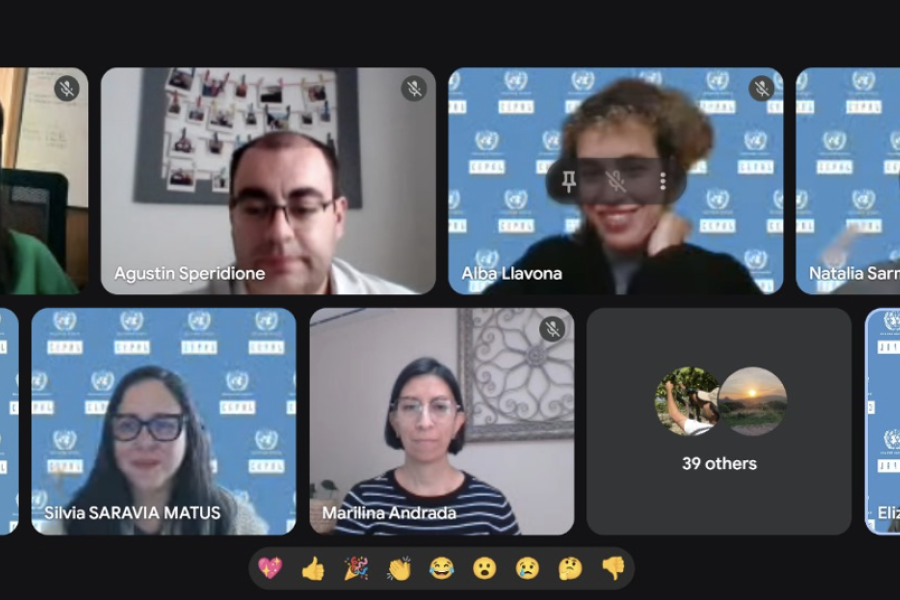Natural resources
Es estudio de los recursos naturales busca mejorar las capacidades institucionales de los países de América Latina y el Caribe para la buena gobernanza y la explotación y utilización sostenibles de los recursos naturales, centrándose en el agua y el saneamiento, la energía, los recursos extractivos, la agricultura, la diversidad biológica y la bioeconomía.
Activities

Caribbean Youth Dialogues 2025 in preparation of the ECOSOC Youth Forum
The 2030 Agenda for Sustainable Development is an opportunity to galvanize action aimed at promoting greater inclusion of youth in all spheres. This roadmap recognizes in several of its goals the centrality of the full incorporation of youth as a necessary condition to move towards more inclusive societies, in which no one is left behind, on a path to sustainable development. However, youth in the Caribbean face many challenges that need to be addressed as precursors to creating environments that enable them to reach their maximum potential to contribute to the achievement of SDGs by 2030, thereby leaving a legacy for future youth generations.

Nature-based solutions to increase water availability for agriculture:…
On Wednesday, May 29, ECLAC carried out the Second Seminar of the Network and Observatory for Water Sustainability (ROSA) Project, which analyzed opportunities to implement Nature-Based Solutions (NbS) to increase water availability for agriculture. This event made it possible to disseminate the study that ECLAC is conducting on NbS in the context of Chile's Irrigation Promotion Law and facilitated the exchange of experiences among participating countries.


Study Tour on Resilient Water Infrastructures
The Economic Commission for Latin America and the Caribbean (ECLAC) is organizing a study tour focusing on resilient water infrastructures. Scheduled from November 18 to 22, 2024, in Santiago, Chile, this tour aims to provide an in-depth understanding of water management systems and their significance in ensuring water security and sanitation in the region.
News

ECLAC and the Ministry of Foreign Affairs of Bolivia hold a training workshop “Governance of Resilient Dams: Water-Energy-Food-Ecosystems Nexus Approach”
On May 6 and 7, 2025, in the city of La Paz, the training workshop “Governance of Resilient Dams: Water, Energy, Food and Ecosystems Nexus” was held, with the participation of representatives from various national institutions, international organizations, and water management experts. The event was conducted within the framework of the Regional Network and Observatory for Water Sustainability (ROSA) Project.

ECLAC and the Ministry of Foreign Affairs of Bolivia organized the high-level discussion “Water at the Center of Sustainable Development” as part of the Bicentennial of the Plurinational State of Bolivia
With the participation of national authorities, international organizations, and regional experts, the high-level discussion “Water at the Center of Sustainable Development” was held in La Paz as part of the Bicentennial of the Plurinational State of Bolivia. The event was organized by the Government of the Plurinational State of Bolivia and the Economic Commission for Latin America and the Caribbean (ECLAC).

ECLAC promotes capacity building in water governance in Argentina’s Federal Training Program for the third consecutive year
As part of the Federal Training Program on Integrated Water Resources Management, ECLAC’s Natural Resources Division delivered a masterclass on water governance. The event, held in a hybrid format, brought together professionals from provincial agencies across Argentina and, for the third consecutive year, contributed to strengthening technical capacities for more sustainable, inclusive, and resilient water management in the face of current challenges.
Advancing Cooperation on Transboundary Waters in Latin America and the Caribbean
With strong regional participation, the Regional Webinar on Transboundary Waters in Latin America and the Caribbean was held, organized by UNESCO, UNECE (United Nations Economic Commission for Europe), and ECLAC. The event aimed to present the main findings of the Third Progress Report on SDG Indicator 6.5.2 and to discuss strategies for strengthening water cooperation across the region. SDG Indicator 6.5.2 measures the proportion of transboundary basin area with an operational arrangement for water cooperation, a key metric for achieving Sustainable Development Goal 6 on clean water and sanitation.